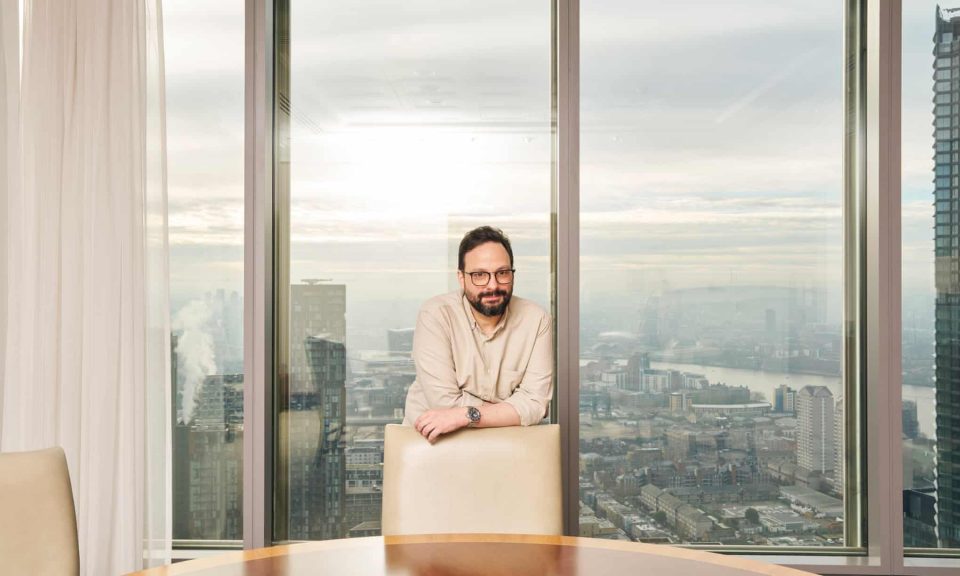The journey began in the spring of 2019 within a discreet office located on the seventh floor of JP Morgan’s London headquarters in Canary Wharf. Positioned behind the busy staff canteen, at the end of a corridor that wound past the office gym and the in-house medical facility, Kuba Fast, who would later become the chief executive of Chase UK, contemplated the considerable task before him: establishing a new digital bank from the ground up for the prominent Wall Street firm.
Months prior, he had been chosen for this initiative by Sanoke Viswanathan, a fellow McKinsey alumnus who had been traveling worldwide to study successful digital banks, including Fast’s previous employer, Poland’s mBank. At that time, JP Morgan shared minimal information about the venture, which was then referred to as Project Dynamo. Nevertheless, Fast enthusiastically embraced the opportunity of starting with a blank canvas. “I committed to this role before even considering where I would reside,” Fast recalls.
Fast forward six years, and he serves as the chief executive of Chase UK, which currently manages £20 billion in assets and offers current accounts, savings, and, more recently, credit cards to a customer base of 2.5 million.
While the bank is still operating at a loss for its Wall Street parent company, Fast indicates that it is on track to break even for the first time in 2025, paving the way for expansion into mainland Europe. “Our goal for 2025 is for the UK operation to become profitable, contributing towards offsetting the costs of the global platform investments we are making,” says Fast.
JP Morgan has long considered broadening its Chase brand, which ranks among the largest consumer banking institutions in the United States, serving nearly half of American households through its online services and 4,700 branches. Initially, senior executives hesitated due to the potential expenses associated with physical branches, but the increasing success of online banking platforms like Monzo, Starling, and Revolut, which emerged around 2015, provided a new opportunity. In 2021, JP Morgan became the second major US bank to enter the UK retail banking sector, trailing Goldman Sachs, which debuted its Marcus digital savings accounts in 2018.
It has been a whirlwind experience for Fast, who once aspired to a lifelong career in academia and linguistics before entering the corporate world by “pure chance.” “In my youth, I viewed myself more as a person of letters than one of numbers,” he admits. Born in 1980 in Sosnowiec, Poland—a nation whose communist regime was soon to collapse—Fast vividly recalls the shortages and long queues for basic necessities during that era. “I have clear memories of people waiting hours to buy a washing machine or meat, or getting on waiting lists for the possibility of purchasing a car five years later.”
When communism fell, an exhilarating feeling of optimism drove him to seek opportunities abroad. His journey took him to Brazil—thanks to an informal student exchange arranged by his father—and later to the west coast of Canada, where he earned his international baccalaureate before returning to Poland for his university education.
Fast developed a keen interest in sociology and computational linguistics, which are currently reshaping numerous industries through AI technologies. However, after postponing his PhD studies, he found himself in a role at McKinsey, a prestigious consultancy famously dubbed the “CEO factory” for developing leading figures in business and politics.
“It felt like being forcibly extracted from a comfortable spot in the library,” he reflects. During his tenure at McKinsey, he assisted banks in rebuilding their operations in the wake of the 2007-08 financial crisis. Just as he achieved partner status, he was recruited by mBank to head the international retail division, from which he later transitioned to Chase UK.
His advancement at Chase UK was hastened by the departure of a predecessor. Nonetheless, Fast remains committed to the company’s founding ambition: “Our aim is to establish a presence in multiple countries and become a leading competitor—top five—in each.”
He acknowledges that the bank remains “far from” achieving this goal in the UK. However, JP Morgan’s confidence in its aspirations was evident in May 2024 when it displayed the Chase logo prominently atop its UK headquarters at 25 Bank Street in Canary Wharf.
Upcoming regulations may further enhance its visibility. With £20 billion in assets, Chase UK is approaching the £25 billion limit that would mandate the separation of consumer deposits from its investment banking activities. However, the Treasury’s proposed changes could increase that threshold to £35 billion.
These existing limits have hindered the growth of Goldman-backed competitor Marcus, which had to temporarily halt new business in 2020 to avoid exceeding the cap. While Fast mentions that this has not yet posed a problem for Chase UK, the regulatory shifts occur at an advantageous moment. “This is absolutely crucial for us … it allows for expansion.”
Regarding the potential impact of the upcoming Trump administration, Fast asserts that Chase UK, similar to its parent company, is prepared for any resulting instability. “[JP Morgan’s CEO] Jamie Dimon often states that economic and political cycles resemble the weather—one must be ready for them. If you lack an umbrella, you might find yourself in trouble. We have structured our operations to ensure that we are equipped for any eventualities.”
Age 44
Family Married to Karolina Lewestam (a writer); father to three children (ages 16, 10, and 6); and owner of three cats.
Education United World College of the Pacific (Canada), University of Warsaw (MA in Sociology), Harvard Business School (MBA).
Compensation Not publicly disclosed.
Recent Vacation A city getaway in Madrid.
Most Valuable Advice Received “If you’re unhappy with your job, consider changing your actions and environment. If it improves the situation, then the problem is solved. If it doesn’t work out, you may end up losing your job, but if you were unhappy there, is that truly a negative outcome?”
Biggest Career Misstep “In retrospect, I wish I had taken more risks earlier on in my career.”
Word He Uses Excessively “Amazing.”
His Means of Relaxation Engaging in crash courses on niche hobbies—“one of my recent pursuits was watchmaking.”


